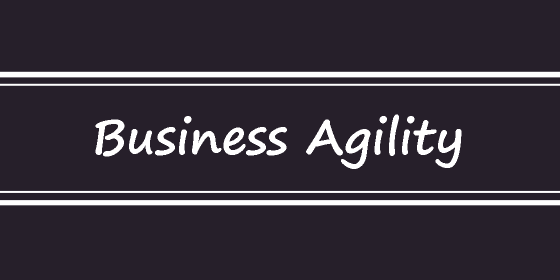Business Agility

Business Agility is the ability of an organization to respond rapidly and effectively to changes in the market, customer needs, technology, and other external and internal factors. It is about creating an adaptive and resilient organization that can continuously innovate, deliver value, and thrive in a dynamic and unpredictable business environment.
Key aspects of Business Agility include:
- Flexibility and Adaptability: Agile organizations can quickly adjust their strategies, processes, and operations in response to changing conditions, seizing new opportunities and mitigating risks.
- Customer-Centricity: Business Agility emphasizes a deep understanding of customer needs and preferences, aligning products and services to deliver exceptional customer experiences.
- Collaborative Culture: Agile organizations foster a culture of collaboration, transparency, and trust, encouraging cross-functional teams to work together toward common goals.
- Iterative and Incremental Approach: Business Agility embraces iterative development and incremental improvements, allowing organizations to deliver value in small, frequent increments.
- Empowered Teams: Agile organizations empower teams to make decisions and take ownership of their work, promoting creativity, innovation, and accountability.
- Continuous Learning: Learning and adaptation are core principles of Business Agility, enabling organizations to continuously improve and evolve based on feedback and insights.
- Value-Driven: Business Agility focuses on delivering value to customers and stakeholders, ensuring that efforts are aligned with business objectives.
- Lean Thinking: Applying lean principles helps eliminate waste, optimize processes, and improve efficiency in delivering products and services.
- Lean-Agile Practices: Adopting agile methodologies, such as Scrum, Kanban, or Lean, helps organizations become more nimble and responsive.
Business Agility is not limited to a single department or team but is a holistic transformation that involves the entire organization. It requires a shift in mindset, organizational structures, and processes to foster a culture of adaptability and continuous improvement. The goal is to enable organizations to thrive in an ever-changing and competitive landscape, deliver value to customers faster, and maintain a sustainable and competitive advantage.
Business Agility is not limited to a single industry or sector. It is relevant to companies of all sizes, from startups to large enterprises, as well as non-profit organizations and government agencies seeking to remain relevant and successful in today’s fast-paced and interconnected world.